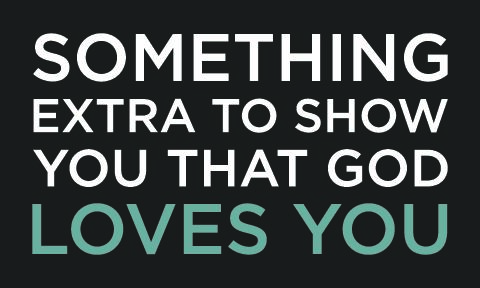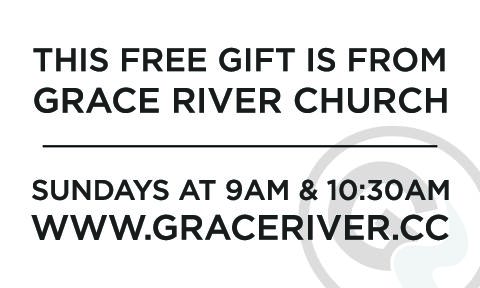Danny: Welcome back everyone to 101 Questions Church Planters Ask. I’m your host, Danny Parmelee, and we have a special guest with us today, Chris Highfill, who is the lead pastor, church planter of Grace River in St.Louis Metro Area. Chris, thanks so much for joining us today.
Chris: Yeah, thanks, Danny. Thanks for having me. And we love being a part of the 101 Questions Church Planters Ask. And so thanks so much for all this amazing content that you put out all the time.
Danny: Well, great. Well, today we’re kind of going to be answering the question, you know, what are the best ways to engage in a community? And one of the reasons that I brought you on is that I know that this is a passion area for you, and you’re not only a church planter, but you also coach and train church planters. And you just recently got a promotion. I mean, you used to just be kind of over-church planting in Missouri with Converge, the group that I work with, and that you work with, but you just got a promotion. So, congratulations on that.
Chris: Yeah, thanks. I got a great boss, his name’s Danny Parmelee. And so, it’s a great time, and we’re helping people together and I love it. It’s been a joy and so I look forward to the next leg of the journey with you and with Converge MidAmerica.
Danny: Awesome. All right. So, let’s do this. I thought the best way that we can do this is, go through ten very specific ways in which church planters can engage in their community. Some of them we’ll spend a little bit more time on, some we’ll spend a little less time on, but I wanted you to start out because one of the things that you did was to kind of join the Chamber of Commerce. So, I’ll let you start off, you’ve got number one, I’ll take two, and we’ll just kind of go from there.
Chris: Great. Great. Well, you know, part of my church planting journey was, I was a student pastor before I was a church planter. And one of the reasons why I knew that I was going to plant a church is because I started enjoying time as a student pastor way more when I was outside of the office. And so, whenever I went through a Converge assessment center, got assessed, and got approved by Converge as a church planter, one of the first things that they tell you to do in Church Planting 101 is to join a chamber of commerce. And so, before we even moved to our new area, we joined the chamber. And so, I called them on the phone and said, “Hey, what‘s a non-profit membership for a church?” And they had to look it up because it’s been so long since a church had joined the chamber, so I knew that was like an awesome sign. So, I started going to some meetings. They had a monthly luncheon that I would go to. They had what was called “Leads group”, which is like little sales teams that work together on your behalf, so people are marketing for you and helping you. And I started volunteering at events, and helping them run 5ks for different events that they would have for fundraisers, and then, one day they asked me to be on their board. I never sat on a board of anything. They interviewed me for that position and I got it. And then after a year of being on the board, they asked me to be on the executive team. And after a year of being on the executive team, they asked me to be the vice-president of the chamber. And here’s the stupid thing. I’m a business college dropout, but today I’m the President of the O’Fallon Chamber of Commerce & Industries. And in fact, when we get done here with this podcast, I’ve got to rush over to that place and do board interviews for the next round of board members for the chamber. So, I say all that not to brag on myself, because I could come across like that, I say it to brag on God. And to tell you that if you really want to meet people that are far from Jesus, you have to get woven into the fabric of the community. And one of the greatest ways you can do that is by joining something that’s already happening. For me, in our area, where the movers and shakers were already gathering was the chamber of commerce. And so, it was a no-brainer to join this group and it has been amazing. A lot of people ask about the ROI, or the Return of the Investment on this, and I need church planters and pastors to think about — to think less about nickels and noses when it comes to being involved in things like this, and more about influence and the opportunities that you have to help people meet, know and follow Jesus. And so, the chamber has been a really great leg up in the community for us. I mean, I know the mayor personally because of the chamber. We know the school superintendent personally. He’s been there for 37 years and he considers me his pastor. And I’ve — just for context, I’ve lived here for six years. And so, it’s a pretty crazy thing that God has given us with the chamber, and I love it. I look at it, really, as my second church. And I get the chance to be the unofficial chaplain to this group of business leaders and it’s a lot of fun.
Danny: That’s great. And a chamber of commerce is a pretty common thing within each city. And not everyone’s story, obviously, is going to go the same as yours, but a church planter, especially if they’re moving into a new area, can literally sign up and join — usually, it costs money, how much if someone just wants to join the Chamber of Commerce? Because that’s for any new business, church, whatever.
Chris: Mm-hmm. It’s around $200-$300, most chambers. And I encourage — guys, you know, really, it may not be the chamber, but visit everything. Visit things that are going on in your community. There’s other groups, other civic groups that meet. It may not be the chamber in your community, it was in my community. And so, there’s all kinds of different civic groups that meet in every municipality, in every town. Just find the one that’s the easiest one to break into. Well, when I was a kid playing football, my dad told me to get in the shortest line possible, because he knew that I didn’t have the greatest skills, and so I went out for defensive end because there was only one other defensive end. And so, whenever he got hurt, I got to play. So, that was my thing. I just looked at the chamber as the shortest line possible.
Danny: Nice. That’s great. So, I’m going to move on to number two, which is very, very similar. That’s a business improvement district, so a lot of times cities will have this where there’s like a main street or something, you get involved with that, and they’re kind of all dedicated, a small group of business owners. And if you have a building, or you’re meeting in a downtown area, this is really important. One of our church planters in Arkansas has done this, and it is just very, very similar to your story with the chamber. Just kind of interwoven him into all of the different things that are going on. And then, now, he has begun to get invitations to have influence and stuff, as well.
Chris: Yeah. That’s awesome. He is doing a great job. The next one is volunteer at a homeless shelter, or a soup kitchen. What’s great about this is that this is so simple for your team to get involved in with, too. There’s something you can go do with a group of small groups. And so, we’ve got one of these that we’ve adopted in our community. I know that — we’re coaching a church planter in Kansas City right now, who is in urban Kansas City, and he’s doing an awesome job, Greg McKinney is doing a really, really great job at Glory Church, volunteering in his community like this. In fact, Greg even gives away coats during the wintertime. And I think last weekend, he gave away soup, and coats, and gloves, just right out on the street. And so, there’s a lot of great opportunities here, and there’s a really good thing whenever you partner with something that’s already happening like this.
Danny: Right. And you mentioned something here that’s really important, it’s two-fold because you’re getting involved with something, but it’s something easy for your team members. Whereas the chamber might be just you as the lead planter doing it, doing something like, you know, soup kitchen, homeless shelter, you now involve your team. And the big thing is not just for you to meet other people in the community, but for your team members to do the same thing. So, I’ll take number four, and that would be coach youth sports, so usually, there’s some sort of rack department. What I found fascinating is that when my daughter was in second and third grade, she joined soccer, and you know, I was just watching, I didn’t have time to help or participate in it, and I’m not like some superstar or anything, but I was watching the coach, and I’m like, “This guy is actually teaching them the wrong skills.” And so I had my daughter ask if he’s ever even played soccer before. And the answer was no, which, to me, you know, was a discouraging thing thinking of her future soccer skills. But I was encouraged, thinking about this podcast like, “You know what? With these youth sports, just anybody who’s willing to kind of wrangle the kids as they’re running all over the field or — whether it’s baseball, softball, you know, little league, whatever, it is a way to get involved. And then you get to meet all of the parents, as well, too. So, that’s another way to get involved in the community.
Chris: Yeah. That’s great. And I know very little about sports myself, but I actually was one of those soccer coaches that Danny described, because I just thought, “Well, if I’m going to be here, I might as well coach my daughter’s soccer team.” But I know nothing about soccer, so I was watching YouTube clips about how to be a soccer coach before every practice.
Danny: Great.
Chris: I’ll take number five, coaching or helping with high school sports. So, this is a really great one, and it all hinges, really, on your passion and your skill set, right? So, if you were like, an all-star athlete in high school, and you’ve got great leverage in this way, then use it in this way. And so, this is a really great way for you to connect with a lot of people. You can be, you know, depending on the school district, depending on the community, you can be even the unofficial chaplain or the official chaplain of that high school team. And also, just being involved with parents. I think sometimes we get too locked down with coaching, or we get too locked down with leadership, and so sometimes it’s just being a part of something like this, too. One of the regrets I have about the chamber is, I’ll be honest, I wish I wasn’t the president of the chamber. Because it actually didn’t help me win a lot of friends when I got to this level. Now, I wish I was still at the level where I was just friends with everybody. In the same way, when you coach something, when you’re the head coach, it’s hard, because all the kids want equal playtime, the parents want their kids having equal playtime, and so maybe it’s being the assistant coach, or maybe it’s being — think of yourself as a servant on the team somehow. So, don’t make your end goal being “I’ve got to be the head chief.” Because if that’s the case, you’re more focused on leadership and power, and less focused on influence. The big key here is influence on every one of these. And even when it comes to coaching, you can just be an assistant coach, and that would be a really sweet spot.
Danny: Yeah. That’s great. All right. Number six, refugee resettlement or ESL programs. This usually is going to only be available in larger cities. Our church plant that was in Milwaukee, we had a number of Burmese refugees that were coming in, and so we actually partnered with an organization, as the refugees came in, we would help, you know, get them even the basics — I mean, they came with absolutely nothing. So, it was getting them a bed, clothes, and they knew no English whatsoever, they didn’t know how to use a microwave. And so, we did these programs where, on Saturdays, we would have, you know, our church was filled up with refugees, showing them even some basic cleaning skills, and you know, all sorts of different things. They didn’t have all these different chemicals, so it was like, “Here’s how you read the bottle.” You know, “This is okay.” “You can’t mix these two.” And that type of thing. And it’s just a really great way — again, this is another one where you can involve your team members in this, and it serves a real purpose.
Chris: That is awesome. And I think that’s one of the greatest ideas you shared, Danny. That’s incredible. And I think about like, what the Bible tells us to do. The Bible tells us to take care of people like this. And man, what an awesome opportunity the church has, to take care of foreigners. I think that’s incredible. So, number eight — or number seven. After school programs. So, number seven, after school programs. Even volunteering in a school — now, here’s the thing. I used to do this when I was a student pastor, and I think this is one of the things that gave me a passion for doing church outside of the walls of the church, I think that after school tutoring is incredible because every school that is in your community may tell you that they’re closed right now, like closed to outsiders helping, all those kinds of things. But I’m telling you, every school needs help with tutoring. And so, instead of always thinking, “What’s in it for us as a church?” or “What’s in it for me as a church planter”, think of how you can help make the community better. And you may have educators or retired educators on your team, and man — when I’m saying your team, I’m saying your launch team or somebody that just attends your church. Man, how incredible would it be to have some of these educators influencing in your school, in the local school around you? And so, after school tutoring is really great. When I did student ministry, I couldn’t break into the local highschool — not break in illegally, but I couldn’t, like — it was really difficult to gain traction in a local school, and so I walked up to the principal one day and said, “Hey, is there anything I could do to help you?” And he said, “We have 45 students flunking out of freshman Algebra. Can you help tutor Algebra?” And the backstory is, whenever I turned in my final Algebra test, whenever I was in college, I told my college professor, “I’ll never use this again.” And he said, “You’ll be surprised.” And so, I turned that test in, and then a year later, one year later, that principal had that conversation with me. And all of a sudden, I was a high school Algebra tutor. And so, that was something that I’d never done before, and I’m really glad that I don’t currently do that now. But anyways, I’m telling you, God’s got a sense of humor. And we really need to think about how we can leverage in the community. And after school tutoring, or during school tutoring is a really great opportunity.
Danny: That’s great. And also, if you are using a school, or you plan to use the school, the more stuff that you can actually do in the school to just kind of reinforce that you’re not just renters, but you’re there to serve them is great. All right. Number eight is doing booths at community events. And I know that this may seem like it’s just kind of a marketing thing, it’s not. It does play a role in, kind of, the awareness, but this is kind of linked, as well, to number one and number two as like, the business improvement district and the chamber. Anytime there are these street, you know, block parties, these art festivals, whatever it is, if there are ways that you can set up a booth, put the church name on it. And my opinion is, the best thing that you can do is actually to sell something and to sell something at a low cost. And here’s why, instead of just giving it away for free: people are skeptical of churches that give away something for free because they sense and/or know that is bait and switch, like, “Hey, would you like this free water?” Oh, now that I’ve got your ear, I’d like to tell you about our church, and I’d like to also tell you about your sins and why you’re going to hell, unless I pray with you, right here, right now.” So, instead, one of the things that we would do is, we would, you know, sell nachos, we would sell snow cones, and we would just sell all that at a low price. Because people would be like, “I want some nachos right now, so I will get those nachos for a dollar.” And yes, we would lose money, maybe it will probably cost us $1.25 you know, per thing that we were kind of selling, but it gave that opportunity — and we just had fun, we had t-shirts on, and we would give them the invite, but we left it at that. We wouldn’t give them their nachos and try to shove Jesus down their throat. And we had so many natural conversations with people, and then people who were actually looking for an excuse, maybe it was a husband or wife, they’d just say, “Oh, I want some nachos.” Because they wanted to find out more about the church. They saw a group of normal-looking people that were having fun, you know, in the tent, in the booth, selling it, and it was awesome. And yes, we had people definitely — hundreds of people come to our church because of the booth. But we even had people that came to Christ directly from coming to the booth and then coming to church the next week. So, one of our guys is even — he’s kind of called himself “The Poster Child” for wanting to do these booths all the time. Because he came to Christ because he wanted some nachos, and we were at one of those street festivals.
Chris: That’s awesome. That’s awesome. So, you call him “The Nacho Guy”, right?
Danny: Yeah.
Chris: That’s really great. So, how often — if you’re in like, pre-launch phase, Danny, how often would you recommend guys doing these kind of events? Or teams doing these kinds of events?
Danny: Especially in pre-launch, in all of them. I mean, there’s usually two to three per summer, I mean, depending on where you’re at. Get that tent up. Get your t-shirts on, and you’ll grow your team from that. You can say, “Hey, yeah, we’re a church that’s coming to town. We’re not launching publicly, but hey, we’d love to meet you. ” And of course, the lead planter, pastor, has to be at all of those. And people need to be trained to kind of funnel people towards you. But as many of those as you can do.
Chris: Mm-hmm. Those events helped us gigantic at pre-launch. We bought some drink backpack dispensers and we would give away drinks at events like this. And it was different than what you did with charging, but we also didn’t try to bait and switch them, we weren’t like aggressive after their email address and phone numbers and stuff like that, because people get weird. We also added to our team, and it was a — you know you always get sunburn on those days, it’s always exhausting, but man, it was such an incredible way, and it still is an incredible way, we still use those events to help connect new people to our church.
Danny: That’s great.
Chris: Great. So, number nine is, participate in local events, so cleanup events, Earth day, things like that, tree planting. Anything that you can do that’s already happening in your community, just join in with it, and you’ll be shocked by who is shocked that you are there as a church. And so, usually the kind of people that participate in these kind of civic cleanup days are a little more liberal-leaning sometimes in their political beliefs, and they are shocked when a church shows up. Because usually, the church is insulated and we’re doing events inside, within our community. And so, for us, to take a step outside of our own little church community and step into the community, people are always blown away when that happens. And I think it would be incredible if you were one of those churches that was shocking people, that — because listen, those kind of people are usually the people that are spiritually disconnected. And so, it’s a whole new group of people for me to connect with. And so, if you’re a planter looking to connect with people that are spiritually disconnected, which, my hope is, you are that kind of planter, that you’re not just planting a church to be able to take people from other churches, or Christians from other churches, this is a great way for you to roll your sleeves up in the community and really destroy stereotypes of Christians. And so, this is a really great chance for you to do that. And so, Circle Earth Day. On the calendar, look at, like, you know, every community has like, kind of a community cleanup day. Roll your sleeves up as a launch team, and do something awesome together like this.
Danny: That’s great. I love it. It is totally a break into the stereotypes and church people just are not expected to show up. So, if you even know whoever the coordinator is and say, “Hey, I’m coming to this, and I’m bringing a bunch of people.” And allow that to even — and say, “You can count on us and call us if you need extra coordinating, call us if you need extra workers, we’re ready to kind of do this thing.” All right. The last one that I’ll share, number ten, is police chaplaincy or ride alongs. This will be fewer people because usually, this is some sort of program that you have to go through to get certified to do this. It’s not a huge thing, but one of our campus pastors did this and it was phenomenal. And the ministry opportunity was huge because — it was ministry opportunity really first of all, to the police force. You would ride along and just get to hear the different things that the, you know, frontline workers were dealing with, just on an emotional and spiritual basis and you were able to, you know, pray for them and offer wisdom and encouragement. But also, then, you know, you have the harder things, where, if you’re the police chaplain and there’s an accident or someone’s hurt, sometimes you go along and you’re the one that delivers that news to the family along with the police officers. But if you want to talk about getting embedded into the community and then learning your community, our campus pastor, he got the ins and outs of every block, of things that were going on in the community, family, political stuff, everything. And so, it was a huge opportunity to, again, be woven into the fabric of the community. All right, Chris, we’re about done with our ten here. But are there any last-minute ones that you just want to just rapid-fire kind of throw them off in there? I know you have tons of ideas for community engagement.
Chris: Yeah. Just some quick ones. And this isn’t for everybody. You know, if you’re in kind of a suburban context, summer movie nights in the park are great. Especially if you’re looking to reach young families. So, that’s something we did. So, movie nights in the park, basically bring a projector, get the movie rights from a movie rights company, and show a movie. Don’t do this in the dead of the summer when it’s crazy hot and the days are long. Do it somewhere closer to the beginning or to the end of the summer. We also did ice cream truck takeovers. And so, if you’re in a suburban context, or it doesn’t really matter what context you’re in, to be honest. You can rent an ice cream truck, and basically what you’re doing is, you’re going to pools and other places where people gather in the summertime, and you’re just letting anybody buy ice cream and you’re just paying for it. No strings attached. And so, that’s wha t we did.
Danny: Do you get to actually drive the ice cream truck?
Chris: Yeah. I actually drove the ice cream truck, and it was awesome. So, that was a part of the deal, I said, “I need to at least drive to one stop.” But basically, it’s a really great opportunity to connect with all kinds of people because usually parents are standing around and they’re kind of blown away by it. Realtors do this and I stole that idea from them. You can take over a coffee shop for an hour and — so, the local coffee shop, or even a Starbucks, and just give out gift cards as people walk in and tell them the coffee is on you. And I don’t want to say you — the name of your church. Danny mentioned first responders, but man, right now is a great opportunity to love our first responders. Especially in the middle of all the chaos that our culture’s going through right now. And then, generosity cards. Finding business-size cards, creating a business-size card for your people to use, and pay for people’s meal in drive-thru restaurants with no strings attached. It’s just an incredible way to be generous. Generosity is the new evangelism. And so, if you can find ways to be generous, I mean, take over a laundry mat and pay for everybody’s laundry on a Saturday. These are usually people from lower socio-economic areas, and so this is a really great opportunity to love people. And guess what? You can have a spiritual conversation with them because they’re waiting on their laundry to get done, right? So you could pray for them, you can talk to them. Just make sure you’re not weird when you do it. That’s my only caution on that.
Danny: Hey, explain to me how it works with the generosity card. So, you’re saying you print a bunch of those off, one side would say, you know, the name of the church I’m assuming, and when the service times are. And then the back would say, you know, “You’ve been blessed.” or something. So then what? You go to a Starbucks, you pay for the person behind you and say, “I just want you to give them this card and tell them it’s been taken care for them.”?
Chris: That’s exactly it. That’s the exact deal. And so, if you want samples of that, we can give you those on Danny’s website, at Church Planters Ask. If you want to look at a sample of what Grace River does for that, we can totally give that resource away. Totally happy to do it.
Dany: Yeah. That’s great. We’ll put that on the blog so that people can see it there. If you want to send me a couple of those, Chris, we’ll put that so that listeners can head over. Well, thank you, everybody, so much for listening, hopefully, you are blessed by this. And Chris, thank you so much for joining us today. And remember, head over to the blog, churchplantersask.com and if you have a question, you can direct message us, leave us a message there. And until next time, keep asking those questions.
Here’s the generosity card Chris mentioned during the episode:


Chris Highfill is the lead pastor of Grace River Church in St. Peters, Missouri. Chris is a graduate of Southwest Baptist University with a degree in church ministries. Prior to church planting, Chris worked in youth ministry for 14 years; 13 of those at the same church. Chris is also the founder of The Link Camp, a two week summer camp for middle and high school students. Under Chris’s leadership, the camp grew from 80 to 800 students in four years. Chris is an active member of the O’Fallon Chamber of Commerce and the Saint Charles County Vision Leadership program. Chris met his wife Sarah while in college and they have been married since 2003. They have three children; Ella, Jack and Alle.





